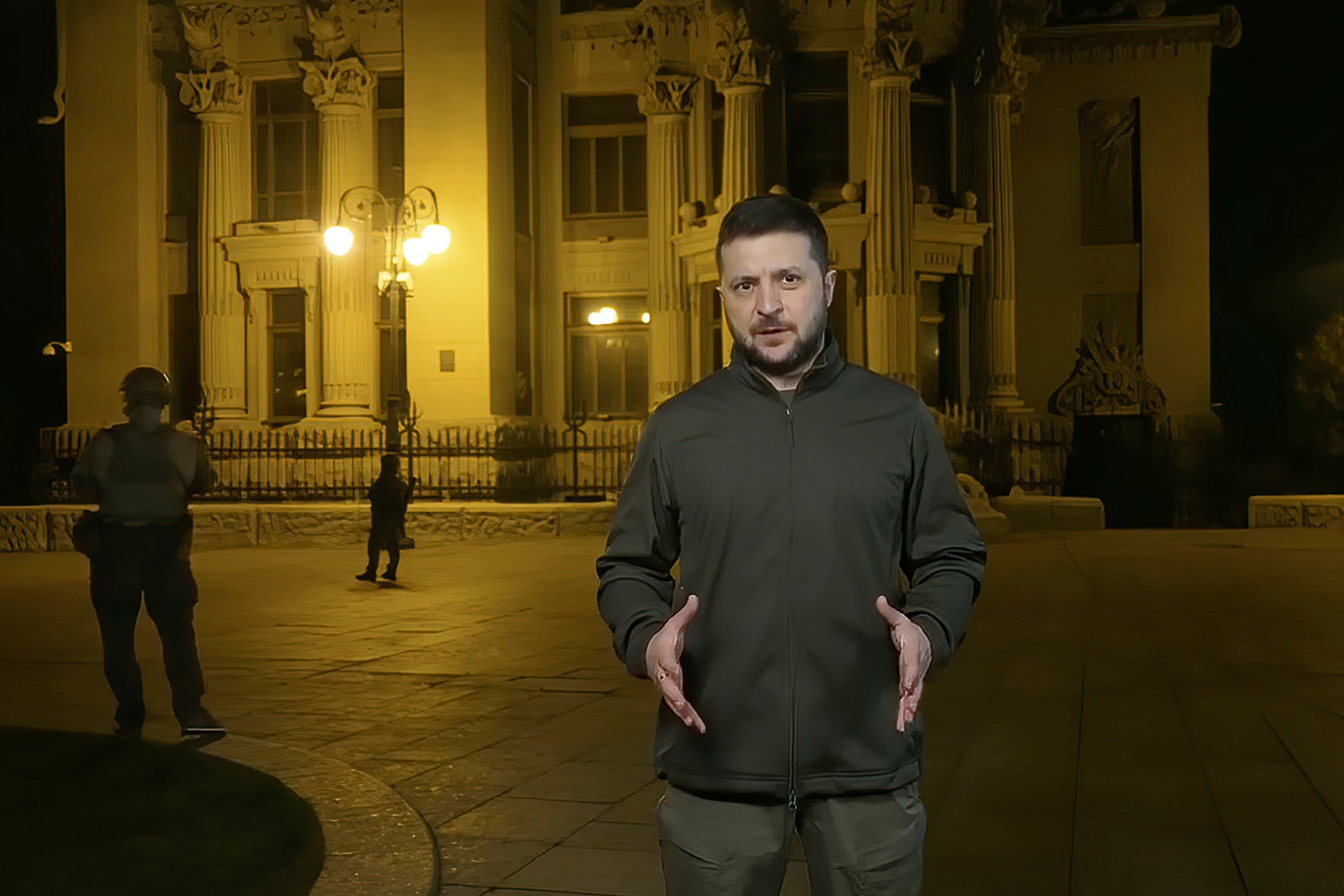Russian hitmen ‘parachuted into Kyiv to kill Zelensky’ at start of war
Ukraine’s president was told on the first day of invasion that he and his family were targets
Your support helps us to tell the story
From reproductive rights to climate change to Big Tech, The Independent is on the ground when the story is developing. Whether it's investigating the financials of Elon Musk's pro-Trump PAC or producing our latest documentary, 'The A Word', which shines a light on the American women fighting for reproductive rights, we know how important it is to parse out the facts from the messaging.
At such a critical moment in US history, we need reporters on the ground. Your donation allows us to keep sending journalists to speak to both sides of the story.
The Independent is trusted by Americans across the entire political spectrum. And unlike many other quality news outlets, we choose not to lock Americans out of our reporting and analysis with paywalls. We believe quality journalism should be available to everyone, paid for by those who can afford it.
Your support makes all the difference.Volodymyr Zelensky has described how he came close to being captured or assassinated in the early hours of Russia’s invasion of Ukraine.
The Ukrainian president has led his country through the most difficult period in its modern history, gaining international praise for his composure in directing an exhausting defence of Ukraine from its much larger neighbour.
He has refused to leave Kyiv throughout the war, taking sanctuary in his presidential palace as shelling rained down on the capital.
But the presidential compound was not always a safe space for the Ukrainian leader, as interviews with Time magazine reveal how the palace had to be turned into a fortress once the invasion began.
Simon Shuster spent a fortnight in the compound this month and heard how Mr Zelensky’s wartime leadership nearly came to an end within the first few hours of the invasion.
The president said his memories of the first few hours of the war – before dawn on 24 February – were “fragmented” but certain episodes stood out.
He recalls when he and his wife Olena went early that morning to tell their children that bombing had started. Their daughter is 17 and their son is nine.
Speaking from his presidential office, Mr Zelensky said: “We woke them up. It was loud. There were explosions over there.”
It soon became clear they were in personal danger. The president was told Russian strike teams had parachuted into Kyiv to kill or capture him and his family.
“Before that night, we had only ever seen such things in the movies,” said Andriy Yermak, the president's chief of staff.

The presidential guard set about sealing the compound with whatever they could find. A rear gate was blocked with police barriers and plywood and was said to resemble a pile of scrap rather than a fortification.
Mr Shuster said by the time of his visit the compound had become a maze of checkpoints and barricades that consumed the surrounding streets.
Ruslan Stefanchuk, the speaker of Ukraine's parliament, rushed to the presidential palace on the first morning of the war, driving through the city under fire.
His role means he would take command of the country if the president were killed.
He was one of the first to see Mr Zelensky in the office that first day. “It wasn’t fear on his face,” he told Time.

“It was a question: How could this be?”
The president had spent the year to that point downplaying warnings that Russia planned to invade.
When the troops were sent in, he did not have long to dwell on what had taken place.
That night Russian troops made two attempts to storm the compound, Oleksiy Arestovych, a veteran of Ukraine’s military intelligence service, told Time.
Gunfights broke out nearby the palace and guards supplied Mr Zelensky and his aides with bulletproof vests and assault rifles – though only a few of them knew how to handle the weapons.

“It was an absolute madhouse,” Mr Arestovych said. “Automatics for everyone.”
By the following night Mr Zelensky had made clear his intention to stay put, refusing offers from Britain and the US to be evacuated. His bodyguards also felt he should leave the compound but the president insisted on staying and that night recorded the first of his famous video messages in the courtyard of the palace.
It was at that moment the Ukrainian leader recognised his role in the war. “You understand that they’re watching,” he told Time. “You’re a symbol. You need to act the way the head of state must act.”

Join our commenting forum
Join thought-provoking conversations, follow other Independent readers and see their replies
Comments